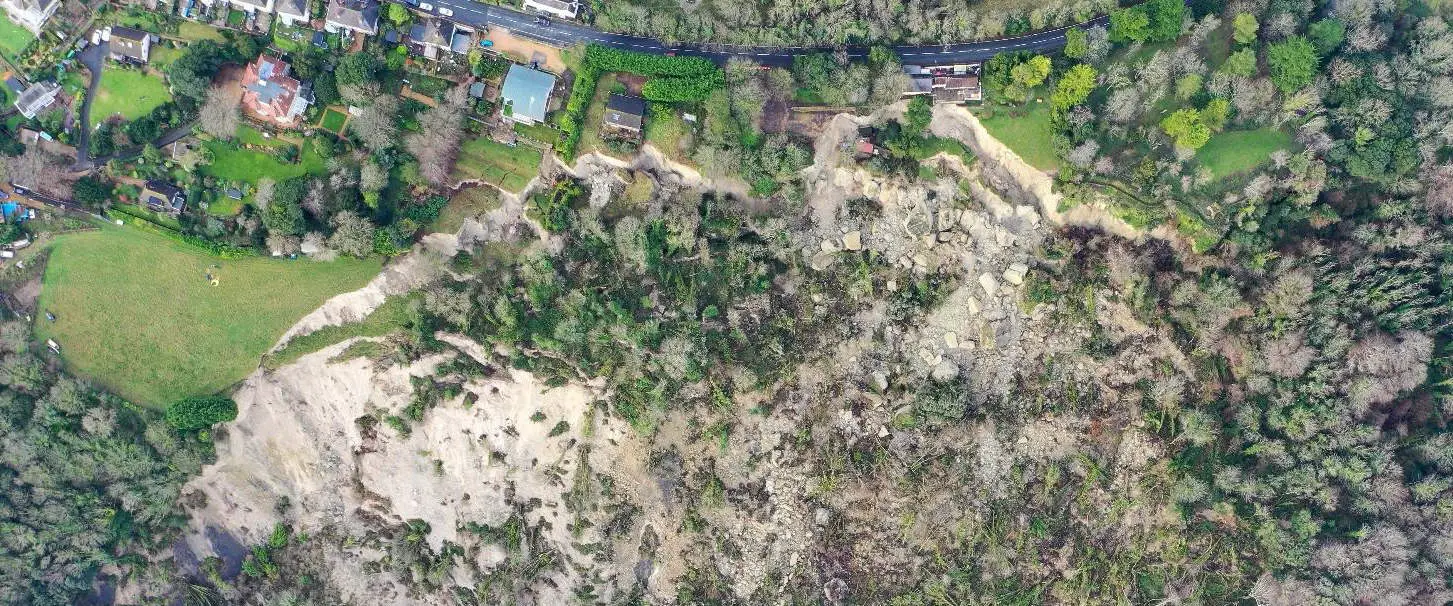Isle of Wight council leader, Phil Jordan, has told OnTheWight that the estimated period of closure for Leeson Road has been reduced to around four to six weeks, from the original estimate of eleven weeks.
Councillor Jordan explained that during a two and a half hour meeting this week, attended by himself and Ventnor and St Lawrence councillor, Ed Blake, as well as community and industry experts and professionals, there was consensus and agreement that a bore hole approach to monitoring the after effects of the catastrophic Bonchurch landslide is essential and entails closing the road.
However, Councillor Jordan explained that he has won the battle of insisting the works are carried out on a seven day working week.
He told OnTheWight,
“The extra working days should mean a reduction in the total project working time and road closure to around 4 – 6 weeks.”
Naturally, this estimate assumes no unforeseen problems are encountered once drilling starts.
Road closure
In order for work to start on Monday 9th September, the road will be closed from 10pm on Sunday, 8th September.
Although they didn’t attend the meeting of experts this week, Shanklin councillors (Chris Quirk, and Michael Beston) have spoken out against the need to close the road once again – citing economic impact to their town.
Background
Leeson Road was subject to an eight-month road closure with homes being evacuated due to one of the largest landslides recorded on the South Coast of England.
It followed heavy rainfall in the summer and autumn and forced the closure of the main road between Ventnor and Shanklin (Leeson Road).
Latest picture
The road reopened at the start of the school summer holidays with temporary traffic light system in place.
It will close again on Sunday night in order to help build a picture of the area’s geology by installing boreholes that are thought to be the deepest ever sunk on the Island, at around 110-metres deep.
The ground investigation will take core samples of the rock layers which can then be assessed and recorded by geological engineers.
The council have persistently said they wish to see the road reopened as soon as possible.





